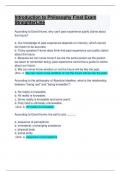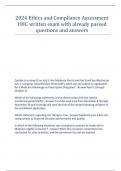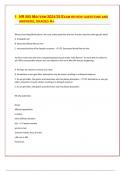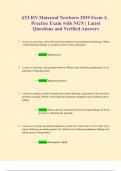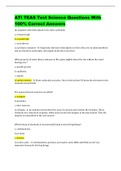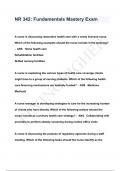Exam (elaborations)
Introduction to Philosophy Final Exam (StraighterLine): Questions & Answers: Guaranteed APlus Guide
- Course
- Philosophy
- Institution
- Straighterline
According to David Hume, why can't past experience justify claims about the future? a. Our knowledge of past experience depends on memory, which cannot be known to be accurate. b. Tricky question! Hume does think that past experience can justify claims about the future. c. Because we can never...
[Show more]
